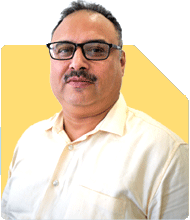Sir, I am 45 , lost 1 cr in business and shifted to Job profile and earning 24 LPA, have 1 home of 65 Lacs with 40 Lacs home loan , 20 Lakhs Mediclaim Policy , Nil Investment. what is the way ahead . 1. come out of depts urgently. 2. Build up a little for kids . Have 2 kids 9 and 8 yrs . school bit costly . 5 Lacs per Annum .
Ans: You’ve experienced a major financial setback with a business loss of Rs 1 crore and have since transitioned to a job with an annual income of Rs 24 lakh. Currently, you have a home valued at Rs 65 lakh but with an outstanding loan of Rs 40 lakh, and you’ve mentioned a costly school setup for your two children, with an annual fee of Rs 5 lakh. You also have a Rs 20 lakh mediclaim policy, which provides some security in terms of health coverage. Now, you are keen on clearing your debts, securing your children’s future, and building up a financial cushion.
Given your circumstances, it’s important to prioritize debt repayment, secure your children’s education, and rebuild your financial base. Here’s a step-by-step approach to achieving your goals.
1. Prioritize Debt Repayment
Paying Off the Home Loan
Your home loan of Rs 40 lakh is a significant liability. Considering that you pay Rs 5 lakh annually for your children’s education, this loan will be a major financial burden. However, paying off your home loan aggressively while maintaining your lifestyle is crucial for long-term stability.
Increase EMI Payments: Check if you can increase your home loan EMIs. You could redirect any excess income towards your home loan. Even a small increase in EMI can reduce your overall loan tenure, saving you substantial interest in the long run.
Lump Sum Prepayments: If you get any bonuses or financial windfalls, use them to make lump sum payments towards the principal. This will help reduce the loan quickly.
Refinance Your Home Loan: If your current interest rate is high, consider refinancing the loan to a lower interest rate. Even a small reduction in interest can lead to significant savings over the long term.
2. Build an Emergency Fund
Before starting any investments, you need to establish an emergency fund. This will prevent you from having to take on more debt in case of unforeseen expenses.
Target 6 Months of Living Expenses: Set aside enough money to cover at least 6 months of your family’s living expenses. This should include EMI payments, school fees, and day-to-day expenses. Aim for a fund of Rs 8-10 lakh for emergencies.
Place in a Liquid Fund: You can park this money in a liquid mutual fund or a high-interest savings account. The idea is that it should be easily accessible and provide some returns.
3. Address Kids’ Education
Your children are 9 and 8 years old, and their education is a significant ongoing expense. With annual fees of Rs 5 lakh, the costs are substantial.
Set Up a Dedicated Education Fund: You can begin a systematic investment plan (SIP) in mutual funds dedicated to their future educational needs. Equity mutual funds will provide the best growth over a 10-15 year period, but you’ll need to manage this carefully as they get closer to higher education.
Consider Education Insurance: Although you have a mediclaim policy, an education insurance plan can provide additional coverage in case something happens to you. This will ensure that their education is funded even if you're not around.
4. Start Long-Term Investments for Retirement
Since you have no current investments and a home loan to deal with, start slowly and steadily building your long-term savings. At 45, you have about 15-20 years until retirement, which is enough time to grow a retirement corpus if you act now.
Systematic Investment Plans (SIPs): Start with an SIP in equity mutual funds. Equity funds have the potential to give higher returns over the long term, which is crucial given the time frame. You can start small and increase contributions as your financial situation stabilizes.
Public Provident Fund (PPF): Consider opening a PPF account. Though it has a lower interest rate compared to equity, it provides tax benefits and a risk-free return. It’s ideal for building a portion of your retirement fund.
Voluntary Provident Fund (VPF): If your company provides EPF (Employee Provident Fund), consider contributing extra to the VPF. This will help build a tax-free retirement corpus.
5. Secure Health and Life Insurance
You already have a Rs 20 lakh mediclaim policy, which is good. However, with two young children, securing your family’s future through proper life insurance is critical.
Term Insurance: You should get a term insurance policy that covers at least 10 times your annual income. With a Rs 24 lakh annual salary, consider a Rs 2.5-3 crore term policy. This will ensure your family’s financial security if anything happens to you.
Review Mediclaim Policy: With rising medical costs, a Rs 20 lakh mediclaim policy may not be sufficient. Consider increasing the coverage to Rs 30-40 lakh, depending on your budget.
6. Manage Current Lifestyle and Expenses
Your children’s school fees are Rs 5 lakh annually, which is a significant part of your income. You’ll need to make sure that this expense does not derail your financial goals.
Budgeting: Create a strict budget to ensure that you are able to save and invest every month. Keep discretionary spending to a minimum until you are able to stabilize your financial situation.
Avoid Lifestyle Inflation: As your income grows, it’s important to avoid lifestyle inflation (increased spending as income rises). Prioritize savings and investments instead of increasing your standard of living.
7. Rebuild Your Financial Confidence
Given the business loss, it's understandable to feel financial strain, but you’re taking the right steps by focusing on your job and rebuilding your financial base. The key now is to be consistent and disciplined with your finances.
Stay Positive and Committed: You have the earning capacity and time to rebuild your financial portfolio. Stick to your investment and debt repayment strategies, and you’ll find that progress happens gradually.
Focus on Long-Term Goals: Short-term market fluctuations and financial hurdles may cause concern, but your goal should always be long-term financial stability and security for your family.
Final Insights
Focus on Debt Reduction: Prioritize paying off your home loan and avoid new debts. Use any excess income or bonuses to prepay the loan faster.
Build an Emergency Fund: Secure at least 6 months of expenses in an easily accessible emergency fund before you start investing.
Start Investing for Kids’ Education: Start an education fund with SIPs in equity mutual funds. This will help you cover the cost of their higher education.
Plan for Retirement: Begin SIPs in equity funds and open a PPF account for long-term retirement savings. Consider VPF contributions if available.
Secure Your Family: Increase health insurance coverage if needed and take a term insurance policy of Rs 2.5-3 crore for your family’s protection.
With disciplined savings, prudent investments, and focused debt repayment, you will be able to rebuild your financial future and secure your children’s education as well as your retirement.
Best Regards,
K. Ramalingam, MBA, CFP
Chief Financial Planner
www.holisticinvestment.in
Holistic Investment YouTube Channel

























